Educational tours see surge in popularity as the younger generation seeks better understanding of country’s rich culture and heritage while soaking in new experiences
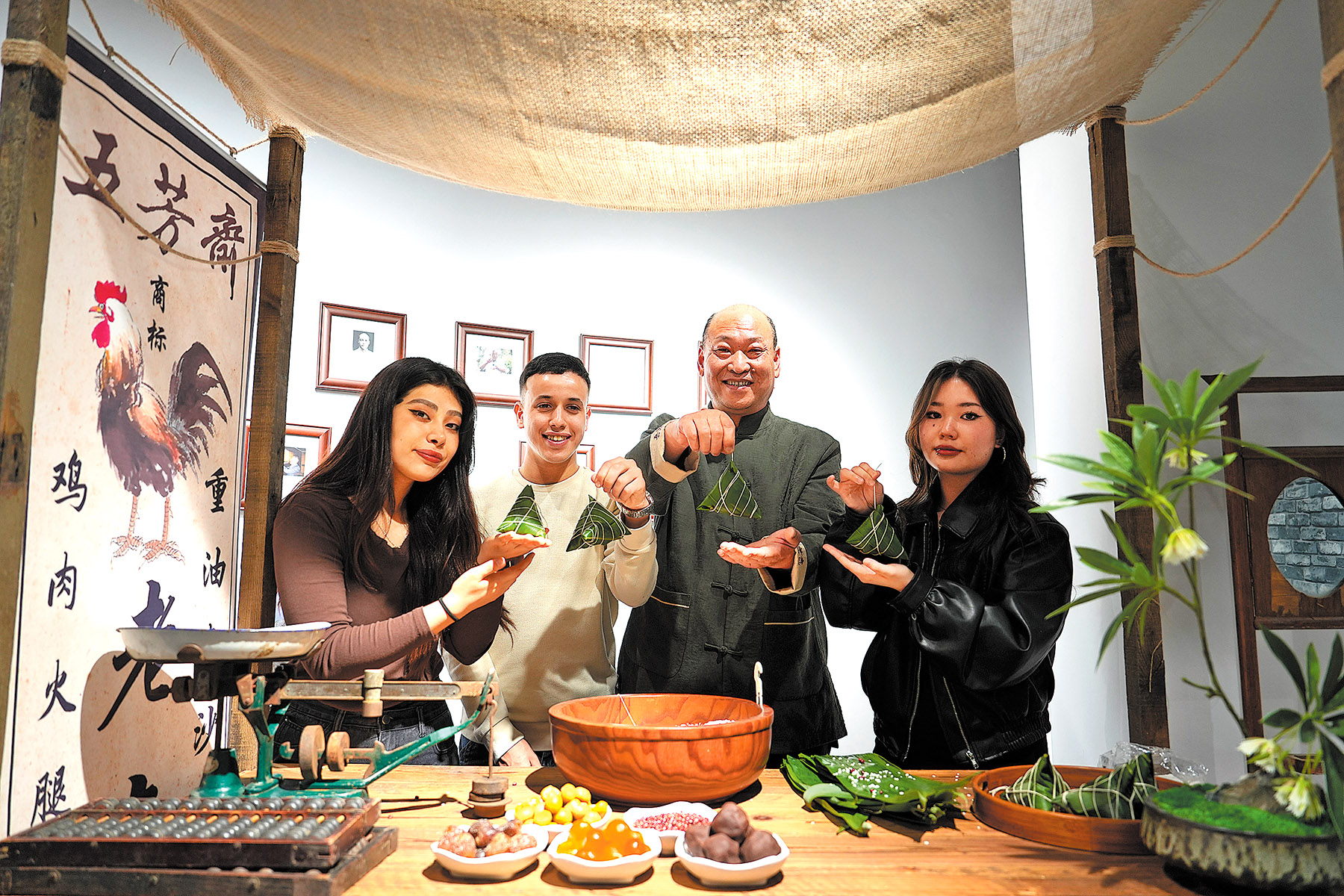
Yao Xinguo recently landed the sweet gig of sharing his beloved zongzi (rice dumpling) techniques with visitors to a new intangible cultural heritage museum.
The museum was opened on May 8 by Wufangzhai, a century-old zongzi brand based in Jiaxing, Zhejiang province.
Yao first walks the visitors, mostly families with children, through the history and culture of traditional zongzi-making before demonstrating how to wrap the glutinous rice with bamboo leaves.
Two green leaves flutter between his deft fingers, and, in no time, a plump zongzi takes shape.
Fifteen families with children signed up for the tour the first day.
The children watched intently, eager to give it a try themselves.
“One hand should hold the leaves, while the other pushes them up. Just a pinch and a fold will do,” said Yao, who has been making the traditional specialty for four decades.
The children could see how the different stuffings were made from scratch and how the rice was processed before being boiled. They also tried their hands at wrapping them.
“The experience will show them how zongzi are created and help them better appreciate the essence of the traditional craft,” Yao said.
The museum has received many tour bookings and inquiries, said Xu Wei, deputy general manager of Wufangzhai.
She expected over 10,000 visitors during the Dragon Boat Festival, which is a traditional time to enjoy these snacks.
“People from educational tour operators, institutes of higher learning and trade unions have shown great interest,” Xu said.
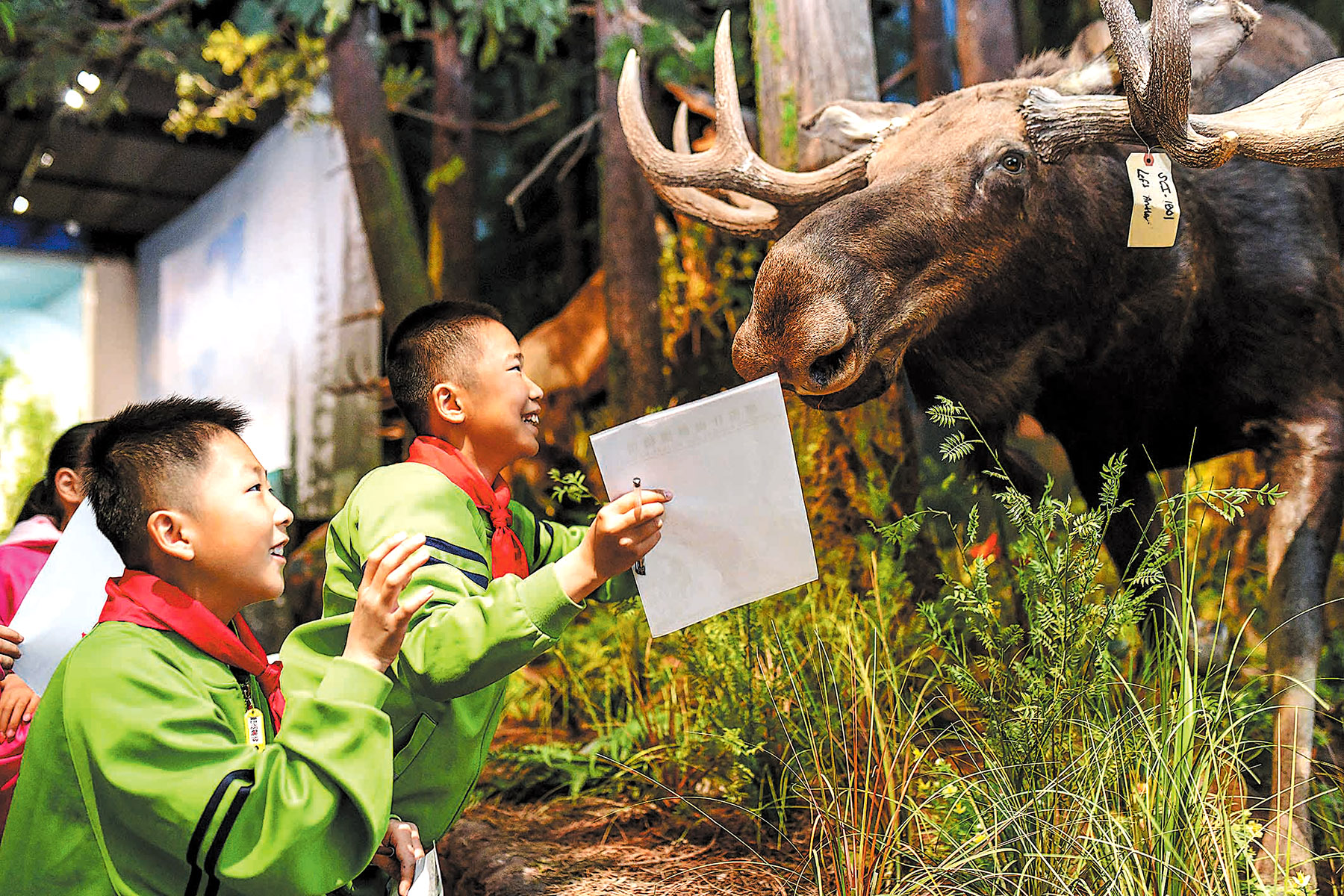
Other local cultural experiences, including encounters with farmers’ paintings and silk embroidery, will be developed to satisfy the growing enthusiasm for educational tours, she said.
“We will hold various intangible cultural heritage activities and exhibitions, and invite art masters and cultural inheritors to offer on-site lectures, so visitors can gain deeper understanding and experiences of intangible cultural heritage, and feel the unique charm of local folk culture,” Xu said.
The new museum’s popularity is thanks to the surging public enthusiasm for educational tours. Many tour operators have reported increases in bookings over the same period of 2019.
The growth rate is significant, and most educational tours last two to five days, said Miao Qing, deputy general manager of Huana International Travel Service, based in East China’s Shandong province.
The province’s destinations featuring Confucius and Yellow River elements are popular, Miao said.
Beijing, Shaanxi province’s capital, Xi’an, and Jiangsu province’s capital, Nanjing, are among the most alluring destinations, Miao added.
Educational tours proved a hit during the recent May Day holiday from May 1 to 5.
Lin Guodong from Shanghai recently made his third trip to North China’s Shanxi province to see ancient buildings. The province boasts several Tang Dynasty (618-907) wooden structures, and more than 500 wooden structures from the Yuan Dynasty (1271-1368) or earlier.
“I have loved history since I was a kid. Compared to reading, educational tours allow me to experience ancient architecture in a multidimensional way and systematize my historical knowledge,” Lin said.
He is among a growing number of travelers who take a special shine to historical architecture and have trekked long distances to see them up close.
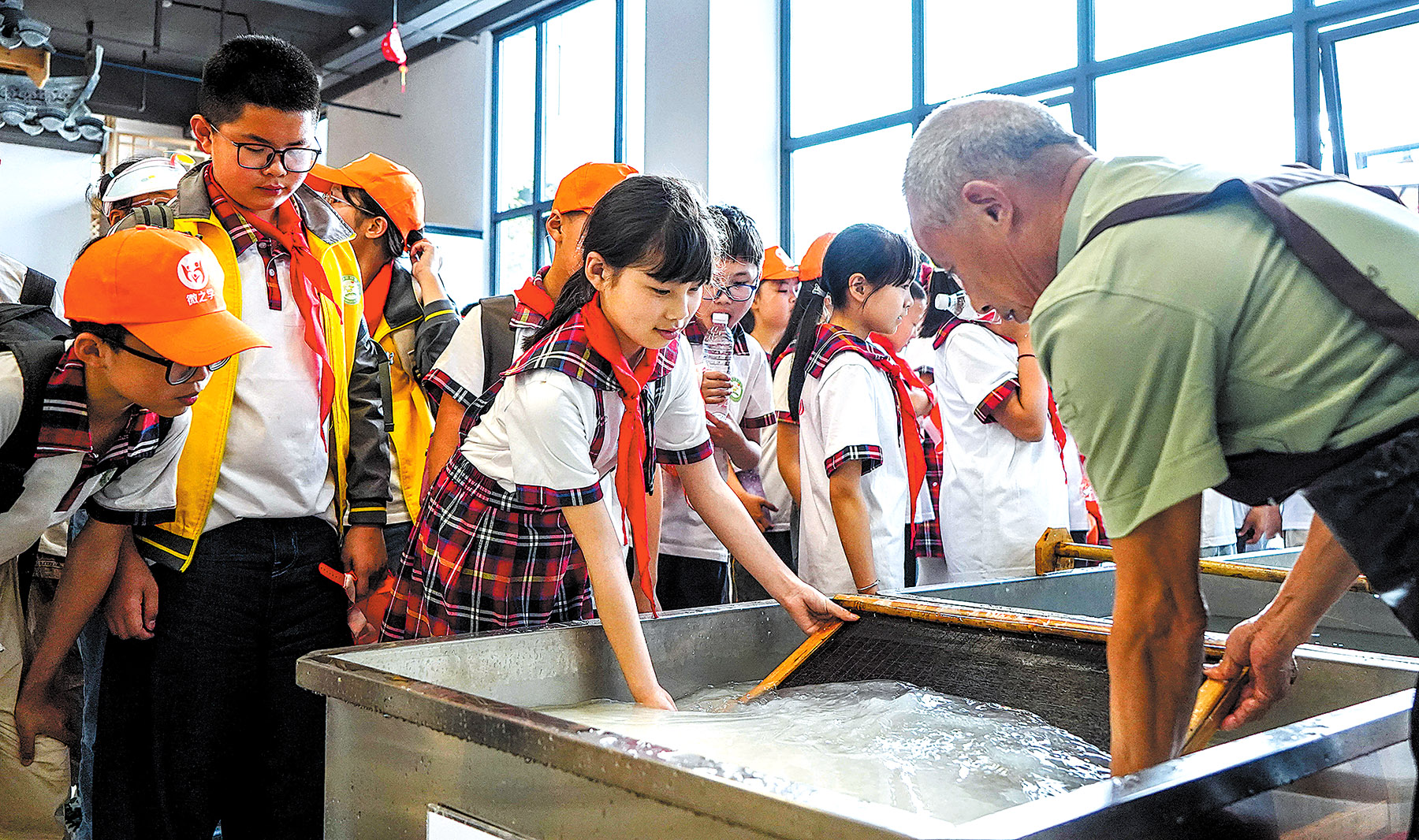
During the May Day holiday, Yingxian county in the north of Shanxi packed in travelers, who were drawn to its famous wooden pagoda that boasts a history of nearly 1,000 years. The county saw homestay bookings surge by 180 percent year-on-year during the period, online service platform Meituan reported.
Yang Jie, who is from Shanxi’s capital, Taiyuan, loves architecture so much that he quit his job and launched his own educational tour business in 2017 that focuses on ancient Chinese architectural history and culture.
“As the level of public education has improved, people’s affinity for culture has also grown stronger,” Yang said.
His business took off immediately. He believes he owes this to the national strategy of developing cultural prowess.
“This has led to many people visiting major museums and developing cultural pride. A lot of people are now paying attention to traditional aesthetics, with ancient architecture being a big attraction,” Yang said.
His company now serves nearly 5,000 visitors a year.
“Over 30 percent of the tourists are younger than 30,” he said.
“It’s evident that an increasing number of young people are interested in ancient architecture, and there is also a surging demand for professional explanations.”
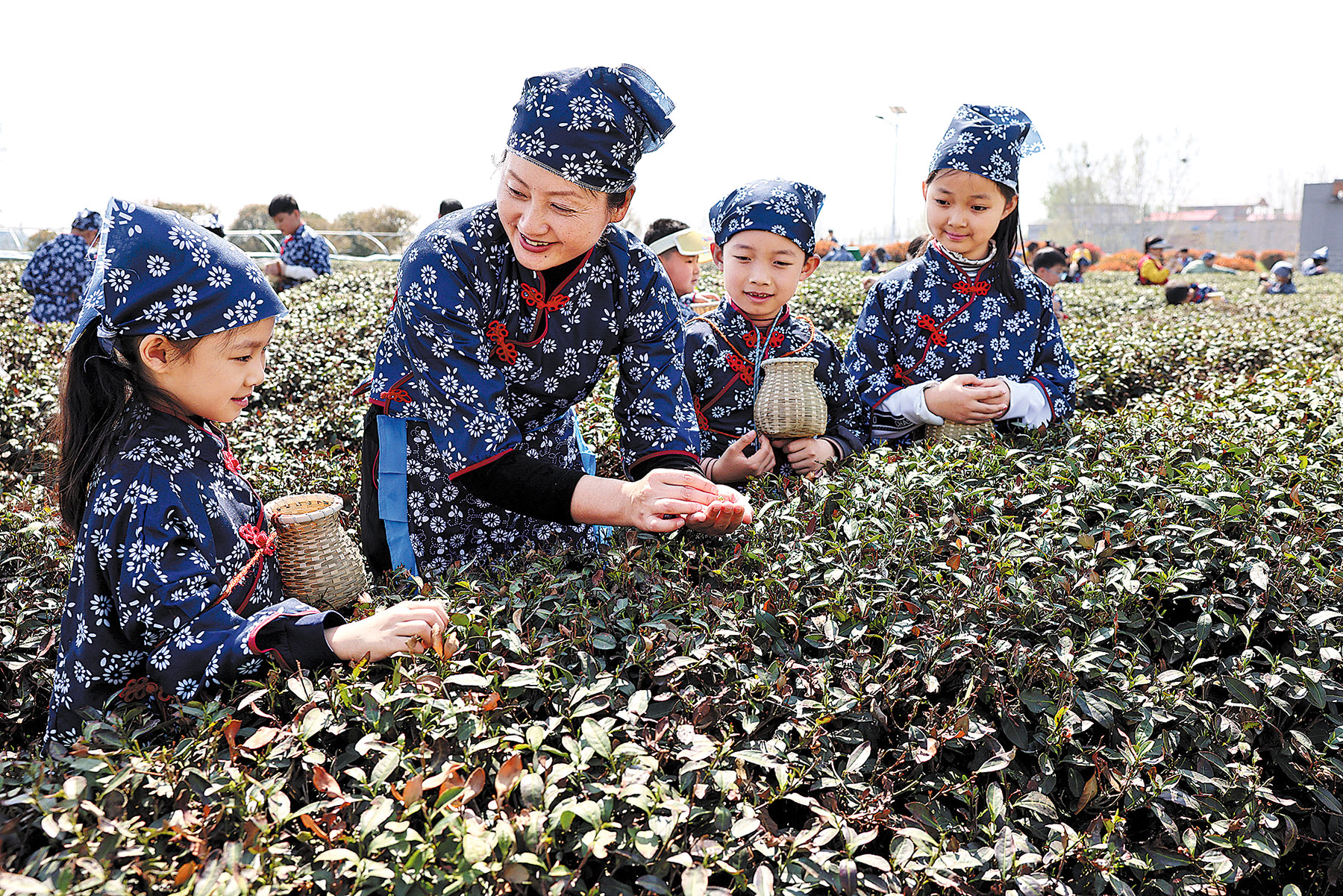
Yang and his team have offered tours at thousands of ancient structures nationwide.
“They are all key national cultural relics under protection. Some are known for their unique characteristics, and some are associated with historical figures,” Yang said.
“We have studied their histories and features, and sorted them chronologically, which has been a huge amount of work.”
A professional team offers travelers detailed explanations of murals and painted sculptures.
And on-site activities such as recitations of ancient poems depicting the architecture in question will be staged for visitors.
“We have also prepared models and teaching tools to engage our customers in discovering the ingenious touch behind the design and construction of those ancient buildings,” Yang said.
He has prepared 16 historical architecture-study routes for the Dragon Boat Festival. Bookings for these were brisk.
Corporate data provider Qichacha reported that about 1,000 new educational tour-related enterprises were registered in the first four months of 2024. There are currently 35,600 related enterprises in China, the tracker noted.
According to a 2023 report on educational tours by the Guangdong province-based market consultancy iiMedia Research, the sector exceeded 90 billion yuan ($12.4 billion) in China in 2022.
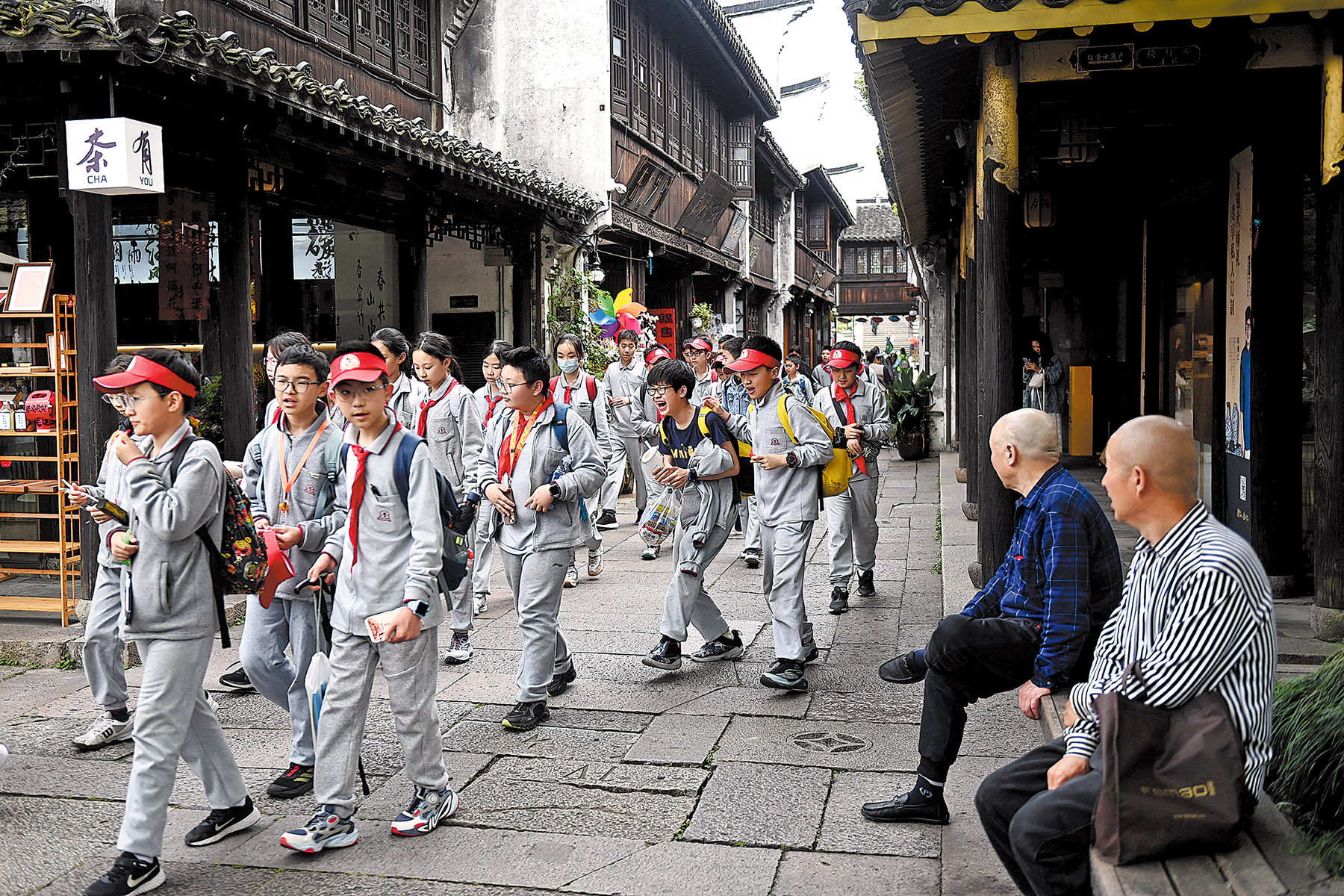
It was expected to reach 146.9 billion yuan in 2023, with a year-on-year growth of 61.6 percent, and hit 242.2 billion yuan by 2026, the report said.
The iiMedia report revealed that primary and middle school and college students are the main consumers.
Most seek to broaden their vision and experience diverse cultures through those tours, and generally prefer short-term trips in China or in neighboring countries and regions. Educational tours ranging from 1,000 to 6,000 yuan are preferred, the report showed.
It predicted that homogenized educational travel services will face increasing difficulties in meeting consumer demand and that outstanding players from various fields, such as technology, manufacturing, energy and the internet, will enter the vast market, contributing to diversification.
“The rise of study tours reflects parents’ concerns about their children and changes in family consumption patterns,” said Ma Lei, a senior officer with the tourism service provider Joyu (Lvmama) Group.
Parents hope that the journey is not just about relaxing and enjoying scenery but also about what their children can learn and gain during the trip, he explained.
“Interpersonal relationships are more important in educational tours. After seeing landscapes and historical relics, children can truly benefit from further explanations, interactions and experiences,” Ma said.


